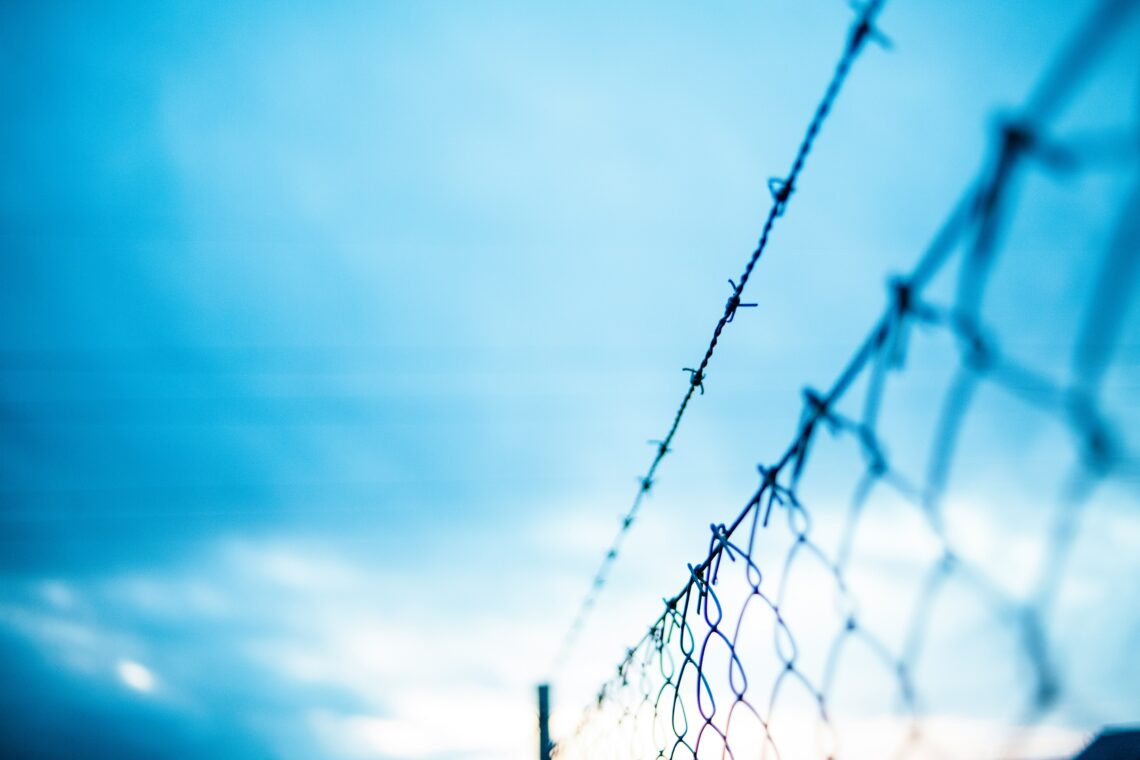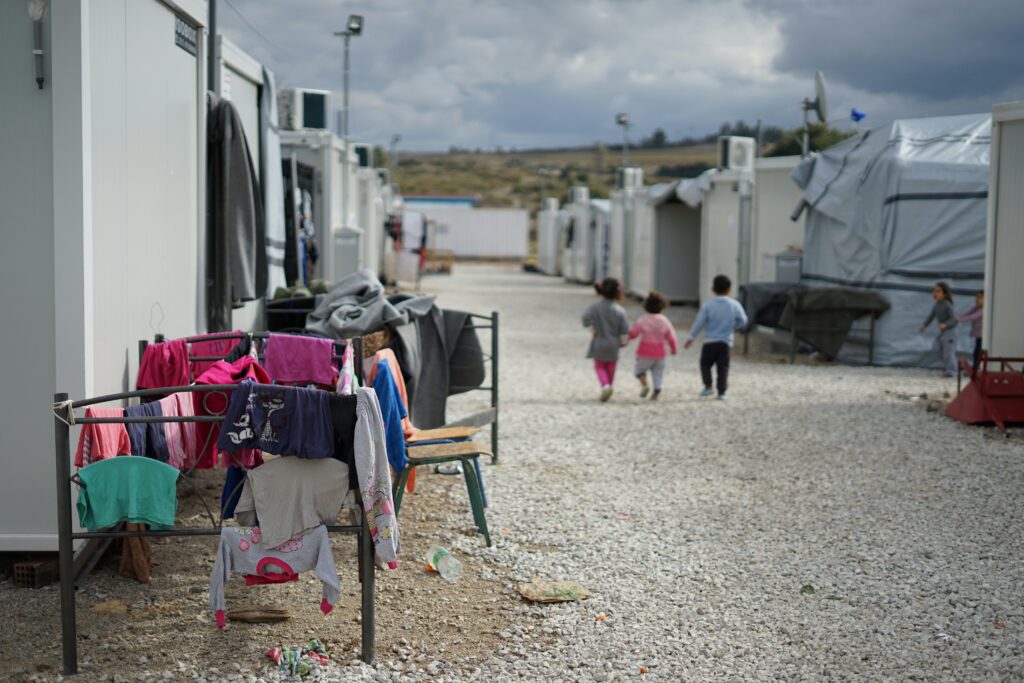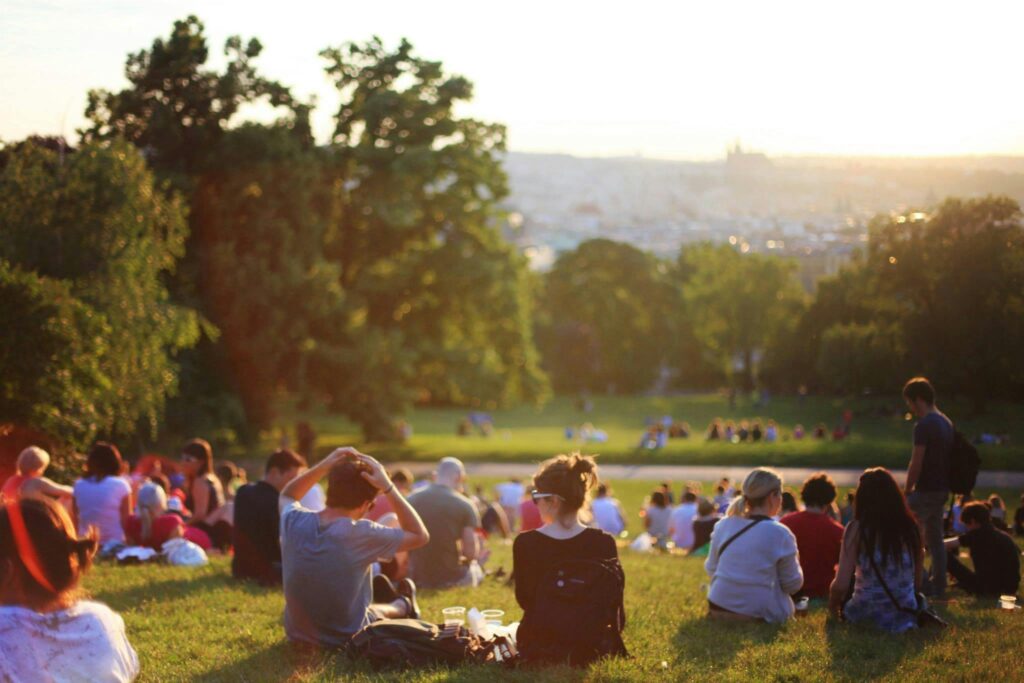
A calm approach to migration
Migration is an issue which provokes strong disagreements and it is rare to find a balanced assessment of both the challenges and opportunities it presents. But in this article Pablo García Ruiz makes a very good attempt.
Migration is not a new phenomenon. There have always been people who, leaving their place of birth, have moved to other cities or countries in search of a better future for themselves and their families.
But current migration is a new phenomenon in terms of its extension and intensity. According to data from the United Nations, in 2020 more than 270 million people were living permanently in a country other than the one in which they were born. In that year, Europe was home to 82 million international migrants.
Mainly due to immigration, from 2009 to 2019 the population increased in countries such as Norway (12%), Switzerland (12%) and Sweden (8%). Germany had 13 million immigrants, the United Kingdom 10 million, France 8 million, Italy and Spain about 6 million.
In proportional terms, the European country with the highest percentage of immigrants in relation to its population was Switzerland (29%), followed by Sweden (20%), Austria (19%) and Belgium (17%).
In other parts of the world, immigration is also an important phenomenon. In 2020, the United States had more than 50 million registered immigrants, accounting for just over 15% of its population. South Africa had 4.2 million immigrants, 7.2% of its total population; Ivory Coast had 2.5 million, or 10% of its population. Turkey had around 6 million, while Saudi Arabia had more than 13 million, or 38% of its population. The countries of South America as a whole received 9 million immigrants, while 17 million emigrants left these countries in the same year.
The majority of people who migrate to other countries do so for reasons related to work, family or studies.
For the most part, these migrations are not a source of problems either for the migrants or for the countries that receive them.
However, quite a few people leave their homes and countries for other compelling and sometimes tragic reasons, such as war, persecution or natural disasters.
According to United Nations data, in 2020 26 million people sought refuge in other countries, half of them under 18 years of age, due to armed conflicts in their countries of origin.
The wars in the Middle East have given rise to a large number of refugees, first in Iraq and then in Syria, who have found refuge in neighboring countries. Thus, in 2020, in Lebanon there were 156 refugees per 1,000 inhabitants; in Jordan, 72 per 1,000; in Turkey, 45 per 1,000.
In other parts of the world, situations of extreme violence, serious political or economic instability, as well as climatic events and natural disasters, have caused the displacement of millions of people within their own countries or to other countries such as Uganda (1.2 million), Ethiopia (1 million), Kenya (400,000), Colombia (1 million), and Peru (0.5 million).
In Europe, since the refugee crisis in 2015, Germany has received 1.5 million people from Syria, Iraq and Afghanistan; France almost 400,000 and Sweden, 300,000. These have more recently been joined by the many persons displaced by the wars in Ukraine and elsewhere in the world.
The reasons for migrating are therefore quite varied, as are the living conditions of the migrants. The consequences for the societies of origin and destination are also very diverse, as are the demands for care and reception.
Those who decide to emigrate tend to have a higher level of education and social skills than the rest of their communities of origin, which also means they are more likely to make contributions in their country of destination.
They often become a link, a channel, for mutual understanding and shared progress between the two societies. They help their families of origin with economic remittances and cultural exchanges. They contribute in their place of destination by carrying out needed jobs, paying taxes and social contributions, entrepreneurship and the generation of social capital, among other ways.
The needs of immigrants are also quite varied, depending on their situation. Refugees and displaced persons, although a small percentage of migrants, have the greatest need for assistance and support because they have had to leave their homes and belongings behind when fleeing.

Also especially vulnerable are those migrants who are in an irregular legal situation either because they entered the country without the required permits or because these have expired. And very especially in need of help are those who have been caught up in criminal human trafficking networks.
The vast majority of immigrants are not vulnerable in these ways. However, they do face specific challenges that lead to everyday problems.
Migrants, as Pope Francis said, ‘experience separation from their place of origin, and often a cultural and religious uprooting’. Those who migrate to another country usually have relatively little knowledge of the social milieu of their new country.
For many, the first barrier is language. This makes it difficult to perform well in daily situations, such as understanding others and being understood at work, at the doctor’s office, at the supermarket, in administrative procedures, at their children’s school meetings, in daily relationships with others and in making friends beyond one’s own linguistic group.
Even with sufficient knowledge of the language, newly arrived immigrants also often lack primary support networks of relatives and acquaintances to turn to in times of trouble.
Substitute social networks then arise, usually composed of immigrants of the same origin, which facilitate knowledge of and access to important resources but at the same time run the risk of inhibiting integration into the host society.
Many immigrants manage to get ahead in life, taking advantage of the employment, educational and social opportunities open to them. However, many also suffer from the lack of opportunities and are the first to feel the impact of any crisis, ending up unemployed or in precarious and poorly paid jobs that are not commensurate with their professional qualifications.
For young migrants, Pope Benedict XVI once said, “the problems of the so-called ‘difficulty of dual belonging’ seem to be felt in a particular way: on the one hand, they feel a strong need to not lose their culture of origin, while on the other, the understandable desire emerges in them to be inserted organically into the society that receives them.”
Testimonies to this reality are not lacking in a multitude of online forums, such as this one: “As the daughter of two immigrants, I feel like I have to work twice as hard as my friends from families who have lived here for generations, just to prove to my parents that it was worth it to come to this country, make that journey and start a new life from scratch.
Being the daughter of immigrants means striving to live a balance between two different cultures.
As a child and teenager, it was not easy for me to accept that I belonged to these two different worlds, so opposed to each other.”
For some young people, this duality leads to a clash between the parents, who remain anchored in their own culture, and their children, who quickly make their new social milieu their own. Moreover, other young people, students from other countries who are far from home, often feel alone and under pressure to study, and sometimes suffer special financial difficulties.
A social and political challenge
Host countries are very aware of the challenges posed by migratory flows, and for decades have been implementing public and social policies to try to address them.
Migration has become a major political issue, intertwining concerns related to human rights, economic development, and geopolitics at national, regional and international levels. In addition, immigration is generating social and media controversy in some societies. Anti-immigrant sentiments are appearing in political rhetoric and fueling demands for reduced inflows and tougher conditions of access.
The Compendium of the Social Doctrine of the Church points out that, in the more developed countries, immigration ‘is often perceived as a threat to the high levels of well-being achieved thanks to decades of high economic growth’. But it also stresses that, with proper management, ‘immigration can be a resource rather than an obstacle to development’ (no. 297).
Pope Francis has often stressed that the attitude of rejecting immigration ‘is an alarm signal, warning us of the moral decadence we face if we continue to give space to a ‘throw-away’ culture’.
Francis frequently points to the risk of members of developed societies disregarding the problems and sufferings of migrants, as though the only responsible party were the State and passing certain laws were enough.
We should never consider situations caused by immigration as impossible or without solution.
In his first trip as Pope in 2013, to the then overcrowded reception center for migrants on the island of Lampedusa, he tried to stir up people’s consciences: “Who among us has wept for the death of these brothers and sisters of ours, for all those who traveled on the boats, for the young mothers carrying their children, for the men who were looking for a means to support their families?”
Today, according to the International Organization for Migration (IOM), World Migration Report 2020, over two thousand people still drown in the Mediterranean every year trying to reach the coasts of Europe in fragile boats.
The Church’s mission has a necessary public and prophetic dimension, which respects the autonomy of the political sphere but does not limit its action to the private sphere, nor is it limited to material assistance and education. As Pope Francis writes in his 2020 encyclical, Fratelli tutti, the Church ‘cannot and must not remain on the sidelines in the building of a better world, or fail to reawaken the spiritual energy that can contribute to the betterment of society’ (no. 276).
In accordance with this mission, she exhorts the institutions in countries receiving immigrants to ‘watch carefully so that the temptation to exploit foreign workers by depriving them of the rights guaranteed to other workers does not spread’.
While seeking to create greater job opportunities in the places of origin, and regulating migratory flows according to criteria of equity and equilibrium, ‘immigrants should be received as persons and helped, together with their families, to integrate into society’ (Catechism of the Social Doctrine of the Church, no. 298).

This policy requires sincere collaboration between the migrants’ countries of origin and destination, accompanied by appropriate international regulations, ‘with a view’, writes Pope Benedict, ‘to safeguarding the needs and rights of individual migrants and their families, and at the same time, those of the host societies’.
It is not a matter of receiving immigrants indiscriminately, but rather of establishing mechanisms that guarantee the common good of both the country receiving them and the migrants.
In recent years, some encouraging initiatives have begun, such as the Global Compact for Safe, Orderly and Regular Migration, promoted in 2018 by the United Nations. The aim is to achieve greater international collaboration and improve the management of migration flows.
The merciful action of the Church takes many shapes. In every diocese there are numerous activities carried out by parishes, associations and institutions moved by hope, courage and what Pope St John Paul II called a new ‘creativity’ in charity.
It is not a case of implementing welfare programs from the top down, but rather of undertaking a journey together, says Francis. Beyond material aid, this requires offering sincere fraternal support, helping each person to face their respective problems, promoting their dignity as persons. As the Pope exhorts, it is a matter of ‘seeing in the migrant and the refugee not only a problem to be solved, but a brother and a sister to be welcomed, respected and loved’.
When we wholeheartedly welcome a person who is very different from us, this enables them, while continuing to be themselves, to develop in new ways.
It is important to value the contribution that immigrants can make to the well-being and progress of everyone.
Mutual communication is needed, discovering each other’s richness, appreciating what unites us and seeing differences as opportunities for growth in mutual respect. Patient and trusting dialogue is also necessary, so that individuals, families and communities can transmit the values of their own culture and welcome what is good in the experience of others.
The presence of migrants and refugees today represents an invitation to recover some essential dimensions of Christian existence that are in danger of being forgotten by a lifestyle drugged with comforts.
At times, in the face of this invitation, the first reaction can be one of fear or doubt about how to act. This is a natural human reaction to what is different and unknown, to what we consider risky, perhaps even dangerous. We may view this situation as a possible source of deception or misunderstanding, of someone taking advantage of our good will.
At other times, fear is the result of a lack of preparation, of not knowing how to help. Problems arise “when these doubts and fears condition our way of thinking and acting to the point of making us intolerant, closed and perhaps even – without realizing it – racist. Fear robs us of the desire and ability to encounter the other” (Fratelli Tutti, 41).
Mercy leads us, above all, to recognize the other person as our neighbor, as a member of the same community. Therefore, to be merciful to others is to extend the bonds of community to the point of including them in these relationships. And, from then on, to care for them as we care for the other members of our community.
The Church does so by encouraging groups and associations organized by parishes and other institutions, where encounter is facilitated. Together with other social bodies, including migrant and refugee associations, networks of collaboration are set up that foster equality and respect for others, and in which what Pierpaolo Donati calls ‘circuits of reciprocal gifts’ can emerge. This opens up possibilities for many other people to take part, helping to overcome fears, doubts and uncertainties.
This is an abridged version of an article first published in Romana, the Bulletin of the Prelature of the Holy Cross and Opus Dei. For the complete article, click here. It is republished in Adamah with permission.
Like what you’ve read? Consider supporting the work of Adamah by making a donation and help us keep exploring life’s big (and not so big) issues!
Pablo García Ruiz
Pablo García Ruiz is a Professor of Sociology at the Universidad de Zaragoza in Spain. His particular areas of research are democracy and public and social policy. He has published about consumerism and consumer behavior.

